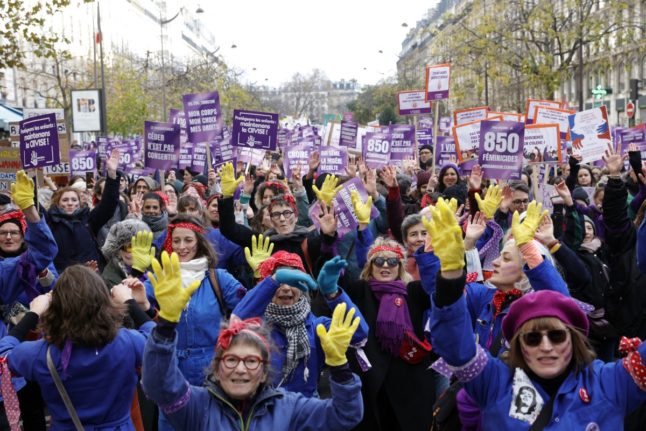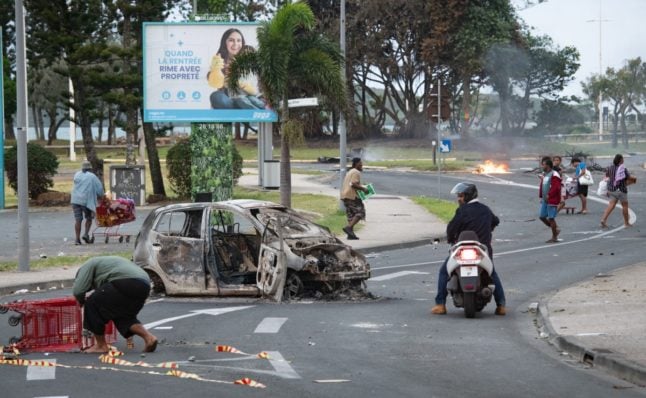Many wearing purple, the colour of women and gender equality, demonstrators wove through the chilly streets of Paris and other cities, carrying signs reading: “One rape every six minutes in France” and “Protect your girls, educate your boys”.
“We don’t want to count the dead any more,” Maelle Lenoir, an official from the All of Us activist group, told reporters, urging the government to devote more money to eradicating violence against women.
France has recorded 121 women killed so far this year in femicides, the killing of a woman due to her gender, compared with 118 in 2022, according to government data.
“Continued violence against women is not inevitable,” President Emmanuel Macron said in a video posted on social media earlier on Saturday. “We must put an end to it and we will do”.
READ ALSO: Macron promises to ‘put an end’ to violence against women in France
Message important en ce jour de mobilisation contre les violences faites aux femmes. pic.twitter.com/MU6tfDu2mZ
— Emmanuel Macron (@EmmanuelMacron) November 25, 2023
The march brought together 80,000 people in Paris, according to organisers. Police put the number at 16,500.
Leonore Maunoury, 22, said that the justice system needed to be changed to deal effectively with the phenomenon, as she march in the eastern city of Strasbourg.
“Sexual violence is difficult to prove. Many cases are dismissed. The justice system is ill-adapted” to deal with the issue, she said.



 Please whitelist us to continue reading.
Please whitelist us to continue reading.
Member comments